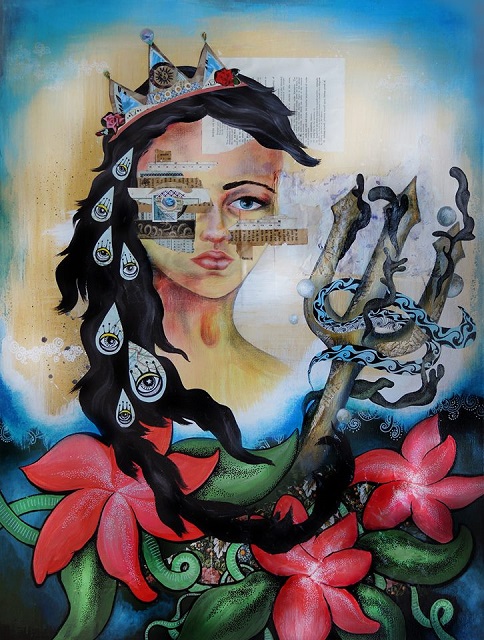
I have always been a literature-lover.
My life has been defined by the books around me and I don’t know what I would do without them.
If I had any doubt about it, I got my confirmation recently, when my fiancée broke up with me just a few weeks before our wedding day.
I am closer to my 40s than my 30s, and it hit me hard. My personal life was all sorted out—only it wasn’t anymore. I felt betrayed and too tired to start over. I couldn’t think clearly—all I could do was cry. But I had my books to comfort me, and I believe that they have saved me from depression or even suicide.
So I would like to share with you how literature helped me to survive the break up with him. If you are going through the same situation, maybe it can help you to see a brighter future and keep yourself from any silly decisions.
Literature helps us to see beyond our problems.
When we are in pain, either emotionally or physically, all that we can think about is the pain itself. We obsess about it all the time, and see it from several point of views and in different scenarios at the same time, without even considering whether it makes sense at all.
All that our mind seems able to process is information about the trouble that we are in at that moment, but not no avail. And because overthinking the problem so much instead of resolving it, it is only natural that the pain becomes overwhelming.
But when we read literature, we are invited to travel to new worlds, meet new people and deal with different situations. Sometimes, we even “meet” people going through the same kind of challenge as us, but, most of the time, the story might have nothing to do with our conflict. This gives our mind a much-needed break, so we can come back later to our problems feeling recharged, hopeful, and full of new and practical ideas.
This is one of the reasons why fantasy and sci-fiction are so popular compared to other genres. They give us the chance to imagine a different reality and open ourselves to brand new possibilities.
Literature encourages us to ask questions.
Instead of spending our time complaining and talking in circles, reading fiction is the best way to push us into something more productive, such as questioning facts and trying to solve problems. When we are going through the pages, we engage ourselves with the characters’ dilemmas and spend our time and energy imagining solutions to their challenges or to making sense of their conflicts.
Reading literature can reconnect us to a part of our brain that is more practical and connected to problem-solving. And when it is awakened, it is easier to solve our own problems in a much more efficient way. We might even be able to borrow some solutions from characters or situations we identify with.
Literature helps us to deal with our emotions.
Unfortunately, it is still largely true that we don’t get taught much about emotions when we are young—especially not tools or resources for how to cope with certain emotions. We learn a great deal of skills that help us to find a job and a build a family, but not much on how to manage our feelings.
Actually, we are kindly asked to repress them or, at least, to refrain ourselves from expressing them except under special conditions or situations. As a consequence, when a problem comes, we just don’t know how to deal with the feelings that come to the surface with it.
But literature can give us an opportunity to face our emotions. Through the characters and plot, we can see how feelings can be managed, what the consequences are for each of them, and how to make the most of what goes in our hearts. No matter how troubled the conflict is, we are watching it from the back seat, while trying to make sense of the story—distancing is a well-known technique that will help anyone not to become overwhelmed by their own feelings.
Literature can help us with mental health issues.
It is common for a trauma or a stressful situation such as a breakup to trigger a mental health issue that was dormant inside of us. It can be depression, anxiety, some kind of phobia, or something else. But literature can help with this too.
The comedian and presenter Stephen Fry, who was diagnosed with bipolar disorder when he was 37, has mentioned in several interviews that poetry was the means he found to express his feelings and find some relief from what was going through his mind. The broadcaster and author Melvyn Bragg has also said that it was his connection with the character of “The Prelude,” by the English poet William Wordsworth, which gave him the opportunity to understand depression better.
Their inputs, and those of many other people, were even used to create an online course for those wishing to use mindful reading to help overcome psychological conditions.
Literature has helped me to overcome the breakup with my fiancée for many reasons.
Reading about other people’s lives, even though completely imaginary, allowed me to step away from my pain, have a laugh, and be entertained. It gave my mind a moment of peace, so it could recharge and heal itself. It gave me the time I needed to feel strong enough to deal with what I had on my plate.
It also gave me resources to see the big picture—to improve my problem-solving skills, and to understand and express my feelings in a more productive way. I learned to see that my emotions are good and valid, not a proof of weakness or something impossible to deal with.
I have also started to believe that happy endings can be possible and that a breakup is just one short story in our life, and that many other stories will come sooner or later.
~
Author: Christine Fernand
Image: Emily Sams Illustration
Editors: Khara-Jade Warren; Sara Kärpänen
~


 Share on bsky
Share on bsky




Read 0 comments and reply